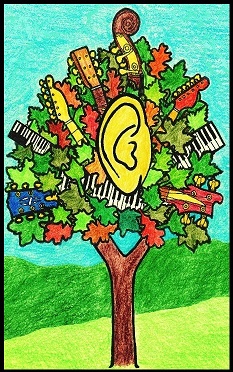 There is a long-standing disconnect between Default Programs offered by music schools and the real wants of consumers with regards to reading music. Most music schools don’t offer programs for non-readers in their ads, brochures, or social media. Most teachers don’t have any coherent, thought-out approach for teaching non-notated music.
There is a long-standing disconnect between Default Programs offered by music schools and the real wants of consumers with regards to reading music. Most music schools don’t offer programs for non-readers in their ads, brochures, or social media. Most teachers don’t have any coherent, thought-out approach for teaching non-notated music.
This is especially true for piano students. Many guitar and bass teachers will teach from tabs and recordings, but most piano teachers insist that you read staff. There is an untapped non-reading market in the music–lesson business. I started using non-reading lessons as an advertising angle back in the 1990s, when I was pinning up fliers for lessons at grocery stores. I got a 6% sales rate – not call rate – for every flier I put up. In print advertising and direct mail, that’s an unheard-of number.
My web page offering non-reading guitar lessons drew tens of thousands of dollars in business, over several years. That’s not just for me, but also for the school I worked for at the time.
Owners should realize there are potential customers who are afraid to approach them. They want to play an instrument, but don’t ask about lessons because they know the they don’t want to have read music. Asking for lessons with no note reading would be like Oliver Twist asking for more gruel. So potential customers just stay away.
I still hear people say, “I didn’t know you could take piano (or guitar) lessons without reading music.” Some rock-based schools advertise non-reading programs. The “alternative to reading” angle gets results, if you can deliver on the promise.
Another issue music schools haven’t addressed effectively is that intermediate and advanced students often don’t need weekly lessons. Students in school band programs, who are preparing to perform a difficult piece, benefit from weekly lessons. This type of advanced student fits perfectly into the music school business model.
When a student gets to an advanced level, then the teacher-to-student relationship becomes a musician-to–musician relationship. Advanced lessons often turn into short workshops on a particular topic or concept. Intermediate and advanced players sometimes need to go away for a while to digest what they’ve learned. This sort of thing doesn’t fit into the music school business model of weekly lessons for a monthly payment. Music schools often can’t do much to accommodate the irregular lesson needs of advanced students, because there isn’t a lot of flexibility in the basic business model.
© 2019, 2020 Greg Varhaug